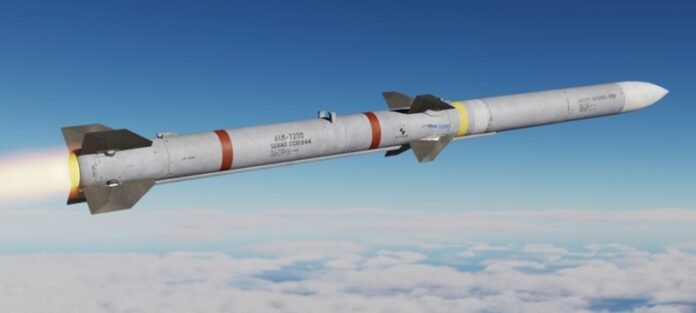New Delhi: The recently arms contract deal notified by the United States Department of War (DoW), initially known as the Department of Defence, indicates that Pakistan may receive advanced medium-range air-to-air missiles AIM-120 (AMRAAM) from the United States, reported a leading Indian news agency.
According to the contract notification, Pakistan is listed among the buyers of AIM-120 AMRAAM, along with other nations. Pakistan, whose economy is already in doll-drums and dependent on IMF’s bailout, the arms deal may cost a whopping $41.6 billion. This deal, if takes place, may point out towards the double standards of America’s foreign policy.
The US DoW’s notification, apart from Pakistan, mentions several other countries. These include: UK, Poland, Germany, Finland, Australia, Romania, Qatar, Oman, Korea, Greece, Switzerland, Portugal, Singapore, Netherlands, Czech Republic, Japan, Slovakia, Denmark, Canada, Belgium, Bahrain, Saudi Arabia, Italy, Norway, Spain, Kuwait, Finland, Sweden, Taiwan, Lithuania, Israel, Bulgaria, Hungary, and Turkey. The order for these Air-to-Air missiles is expected to be completed by the end of May 2030.
AMRAAM is an air-to-air missile that can hit targets up to a range of 20 kms to over 160 kms, depending on the variant and generation. It works on an active radar homing which means it can guide itself to the target after launch.
It’s a supersonic missile and can hit target with a speed of Mach 4+. It can carry high-explosive fragmentation and can be launched with fighter jets like F-15, F-16, F/A-18, F-22, F-35, and NATO aircraft.
The AIM-120C8 is the export version of the AIM-120D, the main AMRAAM variant in US service. In Pakistan Air Force (PAF) service, the AMRAAM is compatible exclusively with the F-16 fighter jet.
In July, PAF Chief of Air Staff, Air Chief Marshal Zaheer Ahmed Babar visited the US State Department as relations between the two countries showed marked improvement following the four-day military conflict between Pakistan and India in May. Currently, the PAF operates the earlier C5 variant, 500 of which were acquired alongside its latest Block 52 F-16s in 2010.




